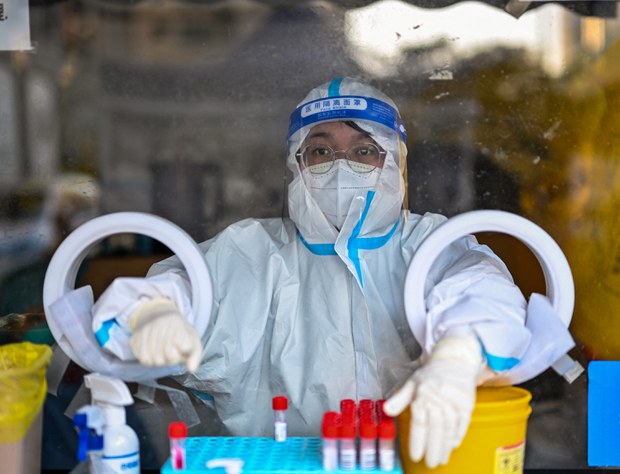US says passengers from China will be required to present negative COVID test
Share

A health worker waits for people to take swab samples to test for COVID-19 in Shanghai, China, Dec. 19, 2022.
Passengers arriving in the United States from China, Hong Kong and Macau will be required to present a negative COVID-19 test from no more than two days before departure, the U.S. health authorities announced Wednesday.
Amid increasing cases of the coronavirus in China nearly three years after the start of the pandemic, the United States joins Italy, Japan, Taiwan, and India in requiring passengers from China to test negative before arrival.
The Centers for Disease Control and Prevention, or CDC, made the announcement, saying that the requirement applies to air passengers “regardless of nationality and vaccination status.”
Passengers transiting through several other international airports will be required to test negative if they have been in China over the last ten days.
Officials also said that the requirement would apply to anyone 2 years or older and allow anyone who tested positive within a 10-day period to provide documents indicating recovery instead of a negative result.
In recent days, reports emerged showing increased COVID outbreaks in several major cities in China, as authorities appear to be moving away from the zero-COVID policy.
Previously, China had maintained one of the world’s strictest lockdown regimes but relaxed them following widespread protests last month.
As a result, international health experts told Reuters that the virus is largely spreading unchecked and could be infecting millions of people who do not get officially counted.
Officials said the policy change was because of a lack of information about the variants contributing to the rise in cases in China, and additional concerns that the rising cases may lead to the development of new variants of the virus.
On Monday, China’s National Health Commission announced that it will no longer be publishing daily COVID-19 infection figures, in a move that appeared to confirm fears about widespread cases across the country. Chinese authorities have repeatedly faced criticism from international organizations over a lack of transparency in reporting numbers.
China also has not authorized any foreign mRNA vaccines for its citizens, instead relying on several locally-made shots. Less than 50% of adults aged 80 or older in China have gotten booster shots for the virus.
U.S. officials said they are still willing to share mRNA vaccines with China, an offer Beijing has rejected publicly before. “We continue to stand by our offer,” one official said while speaking to reporters about the new testing requirement, Reuters reported.







